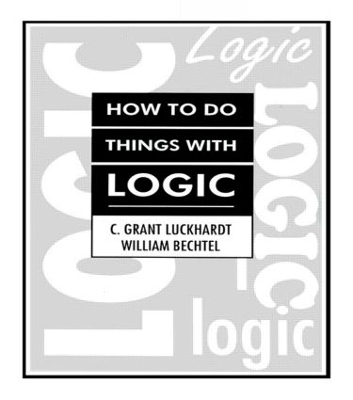
How To Do Things With Logic
Seiten
1994
Psychology Press (Verlag)
978-0-8058-0076-0 (ISBN)
Psychology Press (Verlag)
978-0-8058-0076-0 (ISBN)
This text aims to teach the constructions of good arguments first and then introduce criticism as a secondary skill. The emphasis is not on learning to name fallacies, but on being able to identify weaknesses in an argument so as to be able to construct an effective critique of that argument.
In the past 15 years a host of critical thinking books have appeared that teach students to find flaws in the arguments of others by learning to detect a number of informal fallacies. This book is not in that tradition. The authors of this book believe that while students learn to become vicious critics, they still continue to make the very mistakes they criticize in others. Thus, this book has adopted the approach of teaching the construction of good arguments first and then introducing criticism as a secondary skill. Moreover, the emphasis of the book is not on learning to name fallacies, but on being able to identify weaknesses in an argument so as to be able to construct an effective critique of that argument. The book is accompanied by a workbook featuring a wealth of examples to help students acquire the material.
In the past 15 years a host of critical thinking books have appeared that teach students to find flaws in the arguments of others by learning to detect a number of informal fallacies. This book is not in that tradition. The authors of this book believe that while students learn to become vicious critics, they still continue to make the very mistakes they criticize in others. Thus, this book has adopted the approach of teaching the construction of good arguments first and then introducing criticism as a secondary skill. Moreover, the emphasis of the book is not on learning to name fallacies, but on being able to identify weaknesses in an argument so as to be able to construct an effective critique of that argument. The book is accompanied by a workbook featuring a wealth of examples to help students acquire the material.
Authored by Luckhardt, C. Grant; Bechtel, William; Luckhardt, Grant
Contents: Logic as a Tool. The Nature of Arguments. Valid Argument Forms. The Basic Argumentative Essay: Identifying Your Audience and Developing Your Conclusion. The Basic Argumentative Essay: Generating a Logical Diagram and Written Prose. Evaluation Arguments. Critiques: The Essential Preparation. Critiques: Types of Objections. Critiques: Presenting Objections. Defending Against a Critique. Authority. The Logic of Explanation. Arguing from Analogy.
| Verlagsort | Philadelphia |
|---|---|
| Sprache | englisch |
| Maße | 152 x 229 mm |
| Gewicht | 430 g |
| Themenwelt | Geisteswissenschaften ► Philosophie ► Logik |
| Geisteswissenschaften ► Psychologie ► Allgemeine Psychologie | |
| Geisteswissenschaften ► Psychologie ► Verhaltenstherapie | |
| ISBN-10 | 0-8058-0076-X / 080580076X |
| ISBN-13 | 978-0-8058-0076-0 / 9780805800760 |
| Zustand | Neuware |
| Haben Sie eine Frage zum Produkt? |
Mehr entdecken
aus dem Bereich
aus dem Bereich
ein Gegenentwurf zum kurzfristigen Denken : so werden wir zu den …
Buch | Hardcover (2023)
REDLINE (Verlag)
CHF 27,90
Buch | Softcover (2023)
De Gruyter (Verlag)
CHF 34,90


